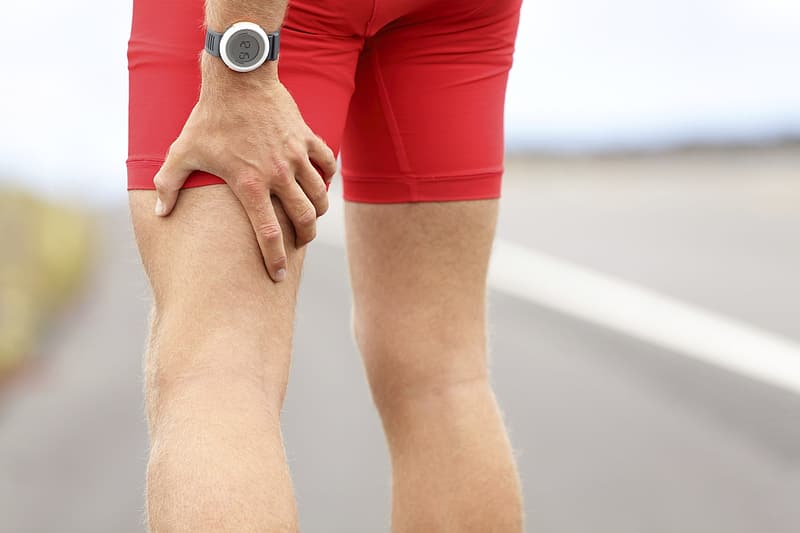Is Vein Disease Genetic?
Have you ever felt a tightness in your calves, swelling of ankles, or leg cramps? Do you often ignore when your body feels weak while standing on your two feet? Well, it’s time for a wake-up call!
Your body is alarming you of a probable vein disease that you may have incurred. Does anyone in your family have a history of venous insufficiency? Did you know that vein health and genetics are interlinked? So, if any of your parents suffer from varicose vein disease, there is a 50% chance that the disease will pass on to you. However, there is a 90% chance of inheriting vein disease if both parents have vein disease running in their genes. But you haven’t lost the battle yet, even if there is family history! Let’s find out ways nip this peril in the bud.
What is the importance of veins in the human body?
In school, an essential chapter in biology talked about the human body and the vital organs. One such imperative section in our body is the vein as these hollow vessels carry the blood pumped by the heart and supplies to all the organs and returns oxygen to the heart. But this process is ruptured when the veins are unable to transfer the blood from the limbs to the heart.
Several factors, such as varicose veins and blood clots (deep vein thrombosis), are common, while obesity, weakening of muscle, pregnancy, smoking, and family history can be some of the other reasons you can incur this disease.
Genetic Studies of vein disease
Genes play a pivotal role in vein disease. Studies on the genetic component of the venous disease show that twins have a high probability of incurring vein disease. There is a 60-90% chance; if one of the twins suffers from vein disease, it will pass on to the other.
According to the researchers and scientists, it is seen that varicose veins may be a genetic disorder, which is present in a person from birth but will come to light with growing age. If a family has a history of severe vein disease, varicose veins, and congenital disorders, this can pass on with the heredity.
Did you know that ulcers are also a part of the vein disease? Most of the ulcers occur due to a wound formed by the weakened veins, restricting the proper flow of blood. So while studying about pool ulcer healing, scientists have come across the fact that ulcer-related vein disease has a genetic influence and can pass down for generations.
Can vein disease become hereditary?
The varicose vein disease can impact the overall quality of your life but can pass down to your future generations. To avoid embarrassment due to visible veins, you will have to reshuffle your wardrobe and restrict yourself from wearing your favorite dress. So, many of us are willing to know for a remedy to fight this dreaded venous disease. Although there isn’t much to do to alter the gene pool, some factors can lower the risk of varicose veins, especially if your family history has its lineage.
The foremost cause of vein disease
An underlying health condition known as Chronic Venous Insufficiency (CVI) is responsible for the occurrence of varicose veins. The venous insufficiency occurs when the smaller valves inside the human body stop functioning, thereby hindering the path of blood transmission to the vessels. This reflux of blood causes varicosity and weakening of the veins. Vein disease is predominantly visible in the lower leg veins because the part of the human body works against the force of gravity and pushes up the blood to reach the heart, and with age, these veins can lose their strength.
Family lineage—plays a pivotal part
Can you blame your parents for suffering from varicose veins? Technically yes, because scientists have found an intrinsic bond between genes and veins. So, there is likely a 40% chance of incurring the disease if one of the parents has it in their genes, but a probable chance of 90% occurs when both of them are suffering, and you are next in line!
Numerous veins are running through the human body, but none, in particular, appears to have a direct relation to vein disease. Having said that, if any of your parents have veins vessels that are likely to rupture functioning over time, chances are you might have it too. This is because some scientists theorize that the strength of the veins plays an imperative part in the occurrence of CVI and varicose veins.
Other factors causing vein disease
Although genes play a vital role in causing varicose vein disease, there are some other factors, which one must consider.
- Leading a sedentary lifestyle often causes obesity, and it is seen that obese people are more likely to incur vein disease.
- Your job can take a toll on your health, especially if it involves sitting or standing for long hours.
- If blood clotting runs in the family lineage.
- Several hormonal changes, especially during pregnancy, can be another factor.
Vein disease is most common in women, especially in older women, wherein the bulging blood vessels become visible.
Preventive measures
So, do you categorize yourself under any of the factors, as mentioned earlier, of vein disease? If yes, then it’s time to take preventive measures to lower the probability of CVI or varicose vein.
- To avoid vein disease, it is imperative to get a healthy lifestyle and maintain proper body weight by exercising.
- Avoid sitting or standing in one position for hours; instead, take a brisk walk between your works.
- Smokers, it’s time for you to quit if you want to prevent the likelihood of vein disease from passing on to you.
It is imperative to consult a doctor in case there are some of the visible symptoms of vein disease because there are various medications, therapies, and in extreme cases, surgeries for improving the flow of blood in the body.
Effective treatment of vein disease
With a family history of vein disease, there are high chances that you may have one or two swollen veins even after diligently maintaining the preventive measure. But we have good news Today, doctors have developed minimally invasive (small incision cuts) methods for treating varicose veins and CVI. However, this method is more effective in patients having a lineage of vein disease in the family.
- Several medications such as anticoagulants, diuretics, pentoxifylline aids in improving the blood flow
- Surgeries include laser surgery, vein bypass, and minimally invasive endoscopic surgery to repair the damaged veins.
- Besides, there are ambulatory phlebectomy, sclerotherapy, and catheter procedure for treating vein disease. However, effective treatment procedure depends on the severity of the disease, symptoms, and age of the patient.
Bottom-line
A wound taking time to heal, a sedentary lifestyle, profound family histories are all factors that can aid in incurring vein disease. Moreover, with the current global pandemic, most of our lives have been confined to the four walls. As such, with work from home jobs, there are chances of sitting in front of the system for long hours, leading to vein disease with age. So it is best to exercise daily, take small breaks in between work, and live a healthy life to build immunity against COVID-19 and improving blood flow in the body.





